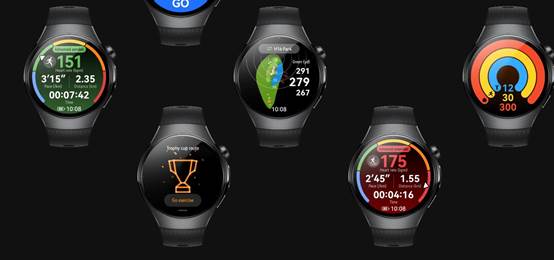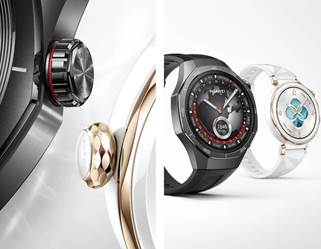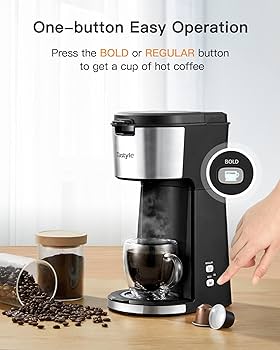Smartwatch Trends to Watch Out for in 2025
Smartwatches have evolved
beyond simple step counts and notifications to become indispensable health,
fitness, and productivity companions. The year 2025 is shaping up to be a
watershed moment, with companies presenting innovations in battery technology,
design, and user experience. Flagship models like the Huawei Watch GT6
demonstrate how quickly the market is moving, with powerful HarmonyOS 6.0
integration, professional-grade health tracking, and tough durability.
Consumers should anticipate wearables to last longer, feel better, and enable
more tailored lifestyles thanks to improved battery efficiency, sustainable
materials, and additional customisation choices. Here are the most important
smartwatch trends to follow.

Are Smartwatch
Batteries Getting Better in 2025?
Long-lasting Battery
Technology Improvements
Battery life has long
been a source of annoyance for smartwatch users, but 2025 promises to bring
significant change. The Huawei Watch GT6 redefines the rectangular shape with
its high-silicon-layered irregular battery. This invention increases space
usage by 26% and energy density by 37%, resulting in longer use without
frequent charging. Users may now rely on longer use for exercises, health
monitoring, and GPS navigation without fear of battery exhaustion. With these
enhancements, smartwatches are no longer simply everyday companions, but also
dependable instruments for travel, endurance sports, and continuous health
tracking. Longevity is now becoming a reality.
Faster Charging
Innovations
Even with larger
batteries, charging speed is critical, and smartwatch manufacturers are
stepping up. 2025 models prioritize rapid recharges to keep wearables operating
all day. Huawei Watch GT6, for example, combines a superior battery with quick
charging capabilities, allowing customers to gain hours of use from a single
charging session. This invention enables you to plug in at breakfast and leave
completely charged for the day. Quick charging is particularly advantageous for
fitness aficionados who log their exercises on a regular basis, as well as
business users who wear watches around the clock. This new standard improves
smartwatch reliability in fast-paced environments.
Energy Efficiency
in Wearables
Beyond larger batteries
and faster charging, smartwatch manufacturers are increasingly focused on
energy efficiency. Smarter CPUs, low-power display modes, and streamlined
operating systems all play important roles. HarmonyOS 6.0 on the Huawei Watch
GT6 exemplifies this technique by intelligently allocating resources,
decreasing background energy consumption while enabling sophisticated
capabilities such as accurate heart rate monitoring and precise GPS.
High-efficiency sensors guarantee that data gathering is dependable without
exhausting power. For users, this means more health data, longer GPS sessions,
and better overall performance on a single charge. Energy-efficient innovation
guarantees that smartwatches add value while using less power in everyday life.
What's New in
Smartwatch Design for 2025?
Sleek and
Sustainable Materials
Design is no longer just about style; it's about durability and sustainability. The Huawei gt6 smartwatch showcases this shift with aerospace-grade titanium, nano-microcrystalline ceramic backing, and sapphire glass, offering scratch resistance, anti-corrosion protection, and luxury appeal. Coatings are also more durable, making them suitable for harsh use ranging from outdoor activities to deep-water diving. Brands are also increasingly focusing on sustainability, employing recyclable or eco-friendly materials. These luxury but responsible designs ensure that buyers receive timepieces that not only look great but also last for years. The emphasis on sustainability establishes a new standard for both performance and environmental consciousness in 2025.

Modular Smartwatch
Design Innovations
Smartwatch design in 2025
is shifting toward modularity, providing consumers with greater options. While
premium versions like the Huawei Watch GT6 excel at all-in-one durability,
other companies experiment with replaceable components, including sensors,
bands, and bezels. This strategy increases product longevity and meets a
variety of customer demands, ranging from fitness tracking to professional use.
Modular solutions help decrease electrical waste by allowing users to replace
individual components rather than replace complete devices. This design move
makes smartwatches more versatile, allowing users to personalize their
wearables over time. Modularity innovation speaks to a future in which
smartwatches will be even more personalized and sustainable.
More Customization
Options for Consumers
Customization has been a
crucial driver of smartwatch adoption, and 2025 promises more than ever before.
Huawei Watch GT6 extends customisation with HarmonyOS 6.0, which includes
modular, video, picture, sticker, and even pet-themed watch faces for infinite
creativity. Consumers may customize their watches based on their lifestyle,
mood, or fashion preferences, switching between professional and whimsical
styles in seconds. Beyond software, a variety of strap configurations and
colors allow users to fit their particular taste. This adaptability elevates
the wristwatch from a mere technological device to an extension of one's
personality. With greater personalization, users may enjoy both excellent
performance and self-expression in a single wearable.
Conclusion
Smartwatches in 2025 are
at the intersection of innovation, elegance, and functionality. Longer-lasting
batteries, quicker charging, and energy-efficient devices solve one of the most
common customer issues. At the same time, design trends emphasize robustness
and sustainability, with premium materials and modular options that provide
longevity and flexibility. Personalization reaches unprecedented heights,
elevating smartwatches beyond functionality to become incredibly personal.
Flagship models such as the Huawei Watch GT6 demonstrate how these features
work together: professional health information, powerful sports tracking,
accurate location, and a beautiful appearance. The wristwatch has grown into a
reliable companion for exercise, health, and daily living.


